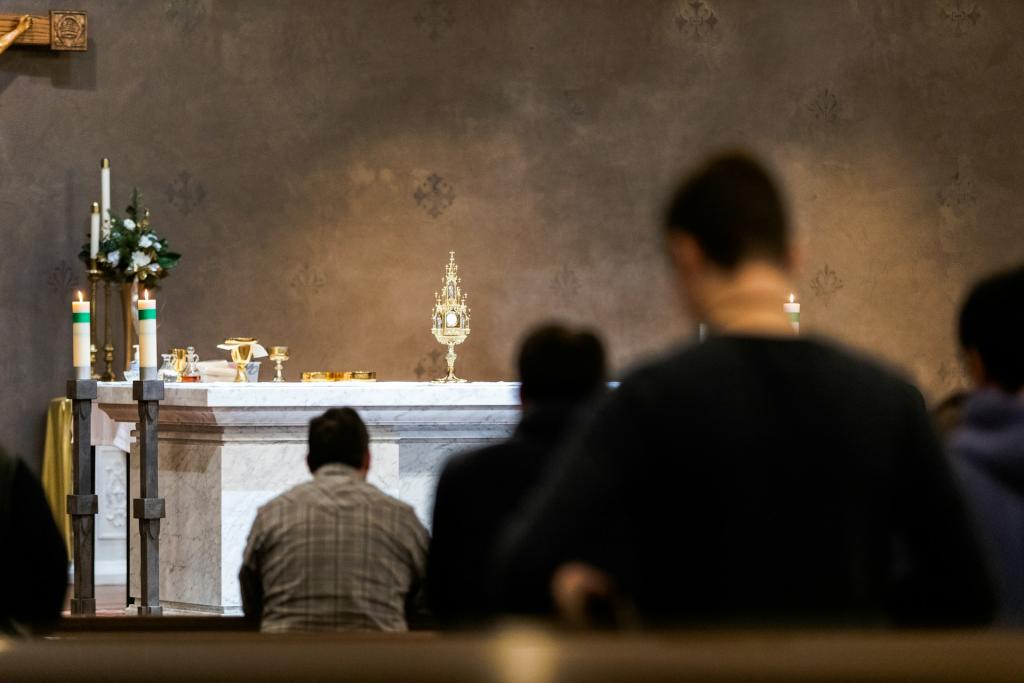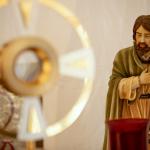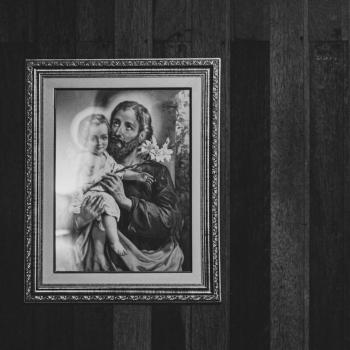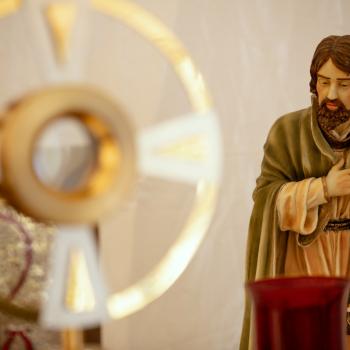“It is what it is” is a phrase that I often come across during difficult exchanges, whether it be with family or coworkers. I understand, yet struggle with it. On one hand, it makes sense to acknowledge the situation and not read too much into it. On the other hand, it’s not the easiest thing to do. As we continue reflecting on Padris Corde (With a Father’s Heart), I’d like to explore two more great dimensions to St. Joseph, obedience and acceptance.
Obedience
As a middle child, obedience was understood, but took time to develop. Now I realize how important obedience is, not only in exercising my role as a father, but serving as a role model to my family. Obedience was something at the heart of St. Joseph. In Padris Corde, Pope Francis notes three instances in Scripture where God revealed his plans to St. Joseph in a dream and Joseph responded immediately by getting up and going (Mt 1:24, Mt 2:14-15, Mt. 2: 21).
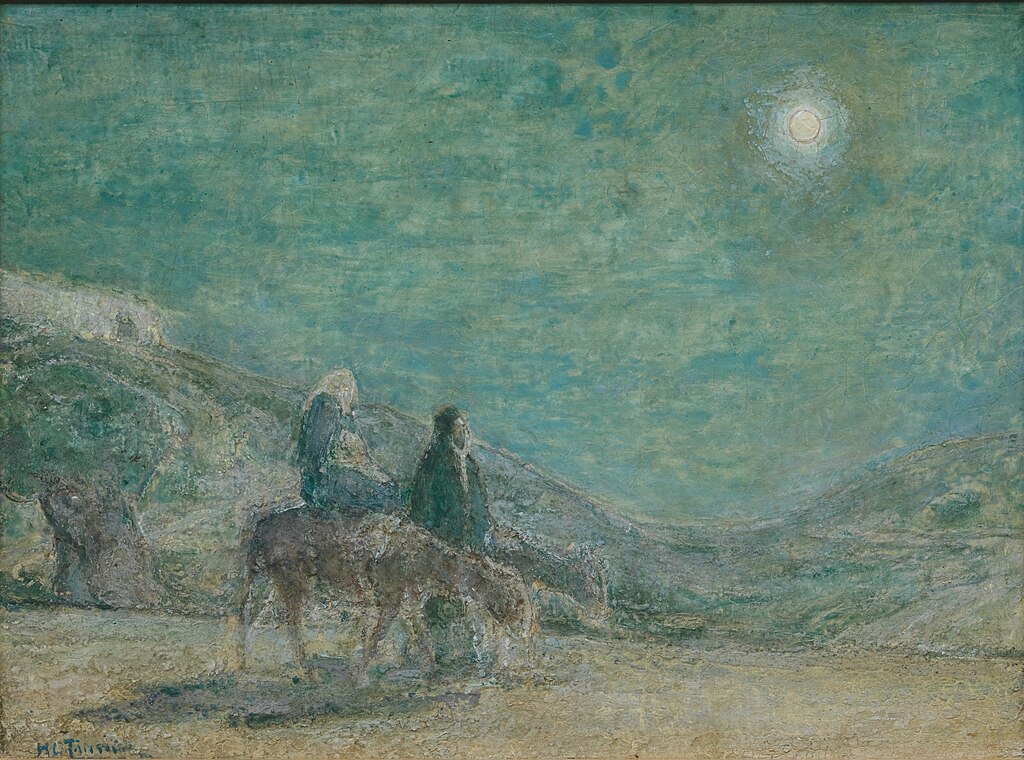
I think about a dog responding to its master when its name is called. What a show of obedience from St. Joseph! Pope Francis notes:
“In his role as the head of a family, Joseph taught Jesus to be obedient to his parents, in accordance with God’s command. During the hidden years in Nazareth, Jesus learned at the school of Joseph to do the will of the Father.”
This is amazing! Despite Jesus’ divinity, there were important lessons that he learned from his earthly father! Pope Francis also noted that the manner in which St. Joseph exercised charity depended on what he learned from the law.
Acceptance
Accepting things as they are is never easy. I think it gets easier over time. Pope Francis notes an important aspect of acceptance as it relates to St. Joseph:
“Often in life, things happen whose meaning we do not understand. Our first reaction is frequently one of disappointment and rebellion. Joseph set aside his own ideas in order to accept the course of events and, mysterious as they seemed, to embrace them, take responsibility for them and make them part of his own history. Unless we are reconciled with our own history, we will be unable to take a single step forward, for we will always remain hostage to our expectations and the disappointments that follow.”
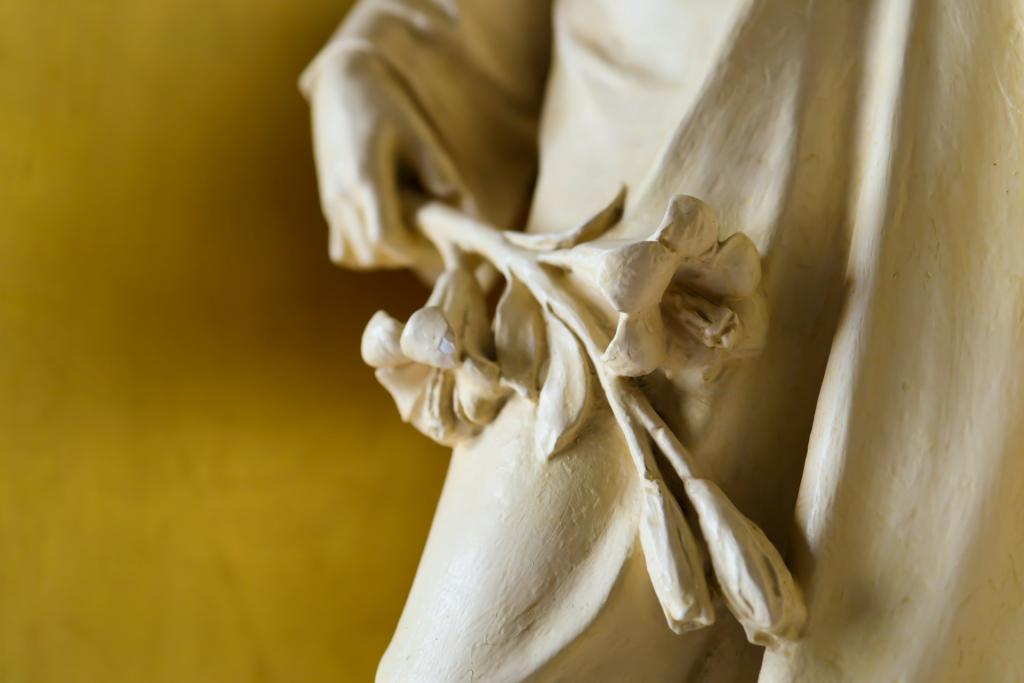
One thing that I have come to understand and embrace as a Catholic man, husband, and father, is learning to embrace challenges. Challenging moments can forge us into men. We meet the challenge head on and accept the responsibility of the circumstance. To me, that is what it means to be a man like St. Joseph. Not only did St. Joseph accept the circumstances, but he also made it a part of his own life.
When my wife and I were going through marriage prep, our priest encouraged us to explore our “story of origin”. One’s story of origin are different aspects of life (family upbringing, cultural traditions, faith, etc.) that shaped one into the person they are today. It’s not to say that these aspects are positive or negative, rather how they will influence the new life one will be sharing with their future spouse. Exploring one’s story of origin is a means of accepting what happened in one’s personal history. In Padris Corde, Pope Francis notes, “The spiritual path that Joseph traces for us is not one that explains, but accepts. Only as a result of this acceptance, this reconciliation, can we begin to glimpse a broader history, a deeper meaning.”

Growing as Men of Faith
The moment we can embrace challenges and take responsibility for what happens, we become men. Furthermore, as men of faith, we see things in a particular light. Bishop Barron in a recent homily, “See Things Differently,” noted:
“So a person of faith, of course, reads history and watches the news and opens his eyes and sees what’s going on in the world. But the person of faith sees more than that because the person of faith is seeing God’s purpose, what God is ultimately up to, and that gives the person of faith this ample vision.”
Pope Francis in Padris Corde encourages us to embrace things as they are, even if the outcomes are not what we expected them to be. By meeting these moments with hope and courage, we can come to a deeper meaning of how things unfold. “The faith in Christ taught us what we see in Saint Joseph. He did not look for shortcuts, but confronted reality with open eyes and accepted personal responsibility for it.” Reflecting on the phrase, “It is what it is,” I think it is a good invitation to practice obedience and embrace acceptance. St. Joseph, pray for us!
